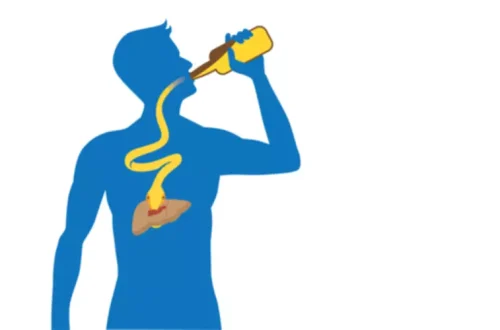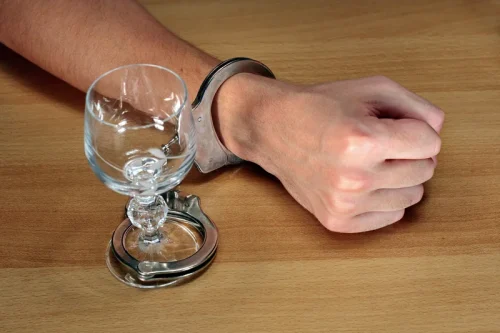Audiobooks to Support You in Your Addiction & Recovery Journey

In Recovery, Russell Brand shares an amusing yet valuable story of addiction and the path to sobriety. As a wildly famous celebrity, he struggled with more than just alcohol. But it’s easy to resonate with his emotions surrounding addiction, no matter your vice. This Naked Mind by Annie Grace https://ecosoberhouse.com/article/does-alcohol-dehydrate-you/ is one of the most loved sobriety books ever written. In it, Annie talks about her own experiences with addiction while keeping things deeply relatable to anyone who’s questioned alcohol’s role in their life. Below are seven different addiction memoirs that have been inspirational to readers.
Lifechanging Books on Addiction and Recovery
Check out our picks for the best addiction and recovery memoirs. Maybe you’ve been leaning on alcohol too much to try to cope with the COVID-19 pandemic. Maybe you enjoyed a successful Dry January, so you’re questioning alcohol’s role in your life.
Powerful Addiction Memoirs that Sober People Love
- I used to work in fashion/beauty/celebrity PR, and I related to her lifestyle before she got sober.
- There are the manic episodes, during which he felt burdened with saving the world, juxtaposed against the real-world responsibilities of running a pediatric practice.
- Through her candid and gripping storytelling, Johnston offers a unique perspective on addiction and provides hope for those seeking recovery.
All in all, this is an excellent quit lit story for those interested in an eye-opening perspective on alcohol’s role in our society today. Self-help books are yet another device that can support your efforts. Granted, books certainly can’t replace treatment and professional guidance. But they can provide fresh perspectives and inspiration—and reinforce that you’re not alone. “It began in Los Angeles in 1993, when Jaime Lowe was just sixteen.

Reasons Why It’s Never Too Late to Seek Treatment for AUD
Having just been released from rehab nine months earlier, his relapse cost him his home, money, career and almost his life. Capturing the drama, tension, paranoia and short-term bliss of drug addiction, his book explores how the patterns of addiction can be traced to the past. But seriously, I hope at least one of these memoirs speaks to you. Beyond the camaraderie of knowing you’re not alone, these books offer practical guidance about the road to sobriety (or your road to changing your relationship with drugs and alcohol).
The Color of Hope: People of Color Mental Health Narratives edited by Vanessa Hazzard
Well known actor Johnston has written “a surprisingly raw and triumphant memoir that is outrageous, moving, sweet, tragic, and heartbreakingly honest. GUTS is a true triumph—a memoir that manages to be as frank and revealing as Augusten Burroughs, yet as hilarious and witty as David Sedaris” (publisher blurb). “This raw, darkly comic series of astonishing vignettes is Emily Colas’ achingly honest chronicle of her twisted journey through the obsessive-compulsive disorder that came to dominate her world. By the time she faced the fact that she was best alcoholic memoirs really ‘losing it,’ Colas had become a slave to her own ‘hobbies’ — from the daily hair cutting to incessant inspections of her children’s clothing for bloodstains. Because there’s no single definition of crazy, there’s no single experience that embodies it, and the word itself means different things—wild? King is a writer, lawyer and NPR contributor whose memoir chronicles her decades-long downward spiral into alcoholism, from her small New England hometown to seedy restaurants where she waitressed and cockroach-ridden lofts where she lived.

Clegg, a successful and intelligent individual, recounts his descent into addiction, the loss of trust among his loved ones, and his eventual path to sobriety. His story serves as a testament to the resilience of the human spirit and the possibility of redemption and transformation through recovery. To navigate the lifelong process of recovery, individuals can turn to various resources, including books that offer guidance, support, and inspiration.
Terry: Daughter’s Struggle Memoir by George McGovern
- Karr arrived with a unique literary voice that combined rich Texan and burst of lyricism.
- I very much related to her always feeling “less than” in normal life, and only becoming confident and alive once she poured alcohol down her throat.
- To vote on books not in the list or books you couldn’t find in the list, you can click on the tab add books to this list and then choose from your books, or simply search.
- Having survived a profoundly dysfunctional upbringing only to find herself hospitalized and facing a dual diagnosis of post traumatic stress disorder and bipolar II disorder; Terese Marie Mailhot is given a notebook and begins to write her way out of trauma.
- Dependency is startlingly unlike any other memoir about addiction—that I know of, at least.
- From Sober Sexpert Tawny Lara comes a cheeky, lighthearted, judgement-free handbook.
It is easy to use addiction as a crutch, a way to build plot or signal “here’s a bad dude,” but it is much harder to accurately and humanely depict the life-warping pain of struggling with alcoholism. The books which do it best, in my opinion, are often not consciously “about” addiction at all, but show its effects lingering in the corners of every page. I am, probably, by way of my history, more attuned to picking up on it than others.
- Serious addiction has a way of annihilating your sense of exceptionalism, stripping away your autonomy and character, and reducing you to the sum of your cravings.
- If you’re feeling down about “missing out” on life if you cut back on alcohol or got sober, read this book.
- She spent most of the next two years in the ward for teenage girls in a psychiatric hospital as renowned for its famous clientele—Sylvia Plath, Robert Lowell, James Taylor, and Ray Charles—as for its progressive methods of treating those who could afford its sanctuary.
- Eventually my faith brought me to my knees and I began my journey of sobriety after having a spiritual experience.
About the Authors
Shook One chronicles his journey to beat those fears and shows a path that you too can take to overcome the anxieties that may be holding you back. “At seventeen Lori Schiller was the perfect child-the only daughter of an affluent, close-knit family. Six years later she made her first suicide attempt, then wandered the streets of New York City dressed in ragged clothes, tormenting voices crying out in her mind. Lori Schiller had entered the horrifying world of full-blown schizophrenia.


